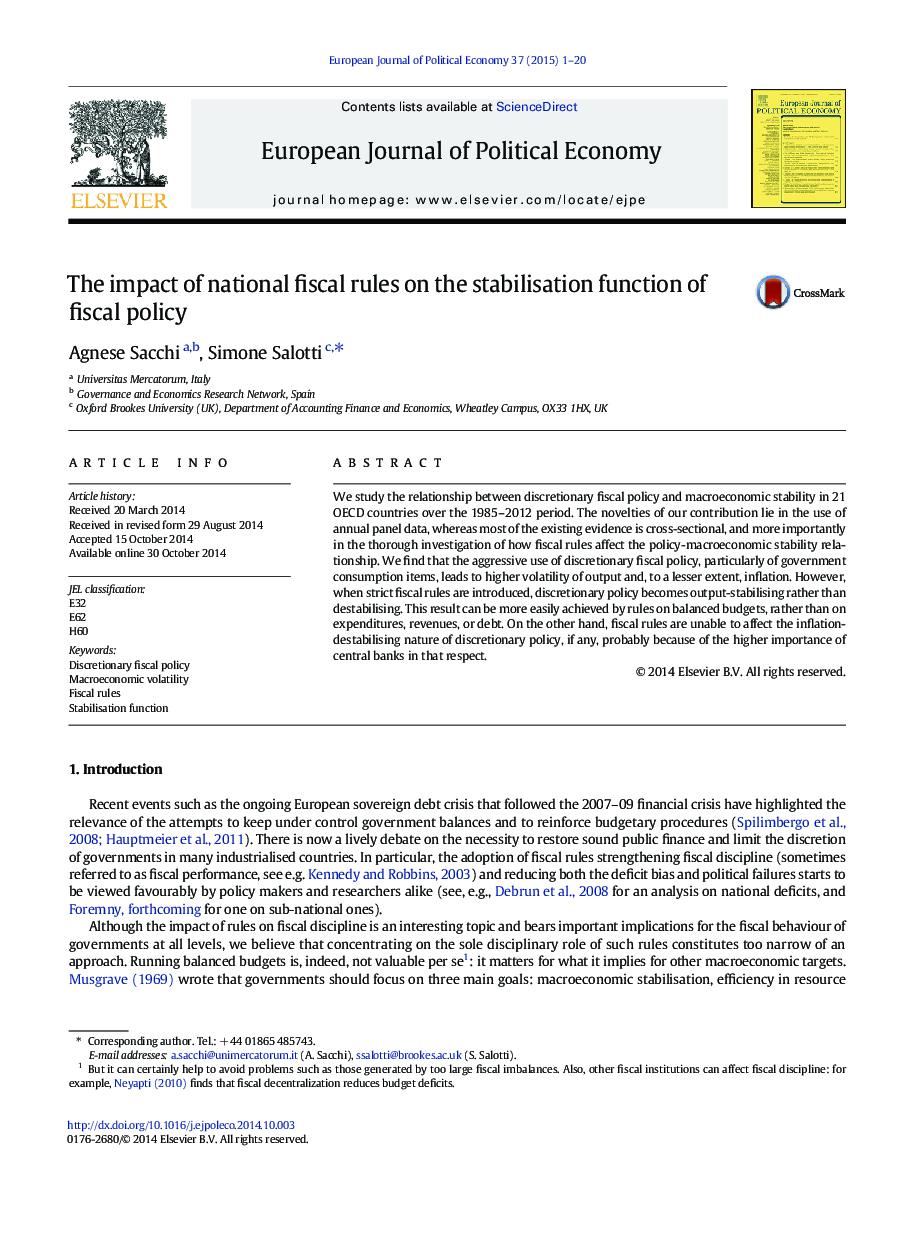| Article ID | Journal | Published Year | Pages | File Type |
|---|---|---|---|---|
| 5067960 | European Journal of Political Economy | 2015 | 20 Pages |
â¢We investigate the macroeconomic stabilisation function of fiscal policy.â¢Aggressive discretionary policy increases macroeconomic volatility.â¢The adoption of fiscal rules mitigates the output-destabilising role of discretionary policy.â¢Strict fiscal rules only can achieve this mitigating result.â¢Fiscal rules are unable to mitigate the potential inflation-destabilising role of discretionary policy.
We study the relationship between discretionary fiscal policy and macroeconomic stability in 21 OECD countries over the 1985-2012 period. The novelties of our contribution lie in the use of annual panel data, whereas most of the existing evidence is cross-sectional, and more importantly in the thorough investigation of how fiscal rules affect the policy-macroeconomic stability relationship. We find that the aggressive use of discretionary fiscal policy, particularly of government consumption items, leads to higher volatility of output and, to a lesser extent, inflation. However, when strict fiscal rules are introduced, discretionary policy becomes output-stabilising rather than destabilising. This result can be more easily achieved by rules on balanced budgets, rather than on expenditures, revenues, or debt. On the other hand, fiscal rules are unable to affect the inflation-destabilising nature of discretionary policy, if any, probably because of the higher importance of central banks in that respect.
